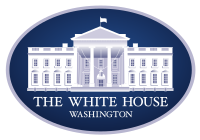1. Rachel Maddow shows the chilling reality of Putin's autocracy in this segment of last night's show - most enlightening for those of us who until now haven't really known what Putin was all about - and its as blood-curdling as any Cold War thriller, if not more so:
2. In a must-read article, Jonathan Chait in New York Magazine spells out the lies and the treason at the heart of the Trump regime in no uncertain terms - excerpt:
[The unfolding Russia scandal] is spinning off in multiple directions, but at bottom it suggests a betrayal of American sovereignty by Trump that is unprecedented in the history of the republic. For a still-unclear combination of reasons — greed for power, greed for money, vulnerability to blackmail, or motivations unknown — the incoming administration cooperated with the undermining of American democracy by a hostile foreign power.
This is already known. On July 4, Franklin Foer wrote in Slate the first major story in the American media identifying a Russian plan to influence the presidential election. He pieced together such evidence as Trump’s extensive financial ties to Russia; Vladimir Putin’s pattern of intervening in elections in the West in order to support his preferred candidates; Russia’s hacking of Democrats’ emails; and the fact that a number of Trump advisers had been paid by sources loyal to the Kremlin, including Trump’s then-campaign manager Paul Manafort, who had carried out a similar strategy on behalf of a pro-Russian candidate in Ukraine that he seemed to be doing in the United States.
In the months that have followed, more reporting on this strange and sinister axis has emerged, mostly in the form of reports that have burst onto the scene as bombshells, only to be quickly displaced by other stories in the disorienting, surreal news environment that is Trump’s Washington. The New York Times has found that “phone records and intercepted calls” reveal that Trump associates had “repeated contacts with senior Russian intelligence officials” and that U.S. allies had uncovered meetings in European cities between Russian officials and Trump associates.
It is not illegal to meet with Russian agents or spies. However, Trump and his advisers have repeatedly lied or contradicted themselves about these meetings. Former national-security adviser Michael Flynn lied to the FBI about his discussions with Russia following the election. Attorney General Jeff Sessions, who told a Senate committee during his confirmation hearings “I did not have communications with the Russians,” in fact met twice during the campaign with Russian ambassador Sergey Kislyak. Only after the Washington Post reported on the meetings did Sessions agree to recuse himself from his own department’s investigation into the matter.
Trump’s statements on his relations with Russia have oscillated wildly. Asked in 2013 if he had a relationship with Putin, Trump said, “I do have a relationship, and I can tell you he’s very interested in what we’re doing here today.” In 2014, he recounted, “Putin even sent me a present, beautiful present with a beautiful note, I spoke to all of his people,” and that he “spoke indirectly and directly” with Putin. In 2015, he boasted, “I got to know [Putin] very well.” Last year, he insisted, “I have no relationship with Putin” and that “I don’t know Putin … I never met Putin.” . . .
On March 2, House Speaker Paul Ryan asserted that he had seen “no evidence that anybody on the Trump campaign or an American was involved in colluding with the Russians.” What evidence would he like? A Trump adviser coyly revealing his advance knowledge of stolen email dumps, then admitting he has a “back-channel communication with Assange”? Because that exists. Maybe video of Trump asking Putin to hack his opponents’ email? Because that exists, too. “Russia, if you’re listening, I hope you’re able to find the 30,000 emails that are missing,” Trump announced at a press conference last summer. “I think you will probably be rewarded mightily by our press.” (Trump later claimed he was joking.) Even if Trump had nothing to do with encouraging the Russian hacking, aggressively exploiting it was a conscious choice. Other Republicans, like Marco Rubio — in one of his periodic outbreaks of conscience — asserted that the GOP should renounce the use of information from WikiLeaks rather than reward foreign interference in American elections. Trump made the opposite decision.
And Trump’s party has mostly decided likewise. All of it is fine — the nondisclosure of tax returns, the unprecedented self-enrichment, the fantastic lies and authoritarian lingo. Republicans in Washington see Trump as a useful vehicle for their policy objectives. Indeed, at least for the time being, Trump’s nationalist ravings have utility for special interests from the Kremlin to Wall Street, all of whom look upon the American president with smugness and satisfaction at a deal well struck. In Trump’s short tenure as president, his demagogic claim that elites have betrayed the American people out of solicitousness to foreign powers has finally become true.
3. "Donald Trump just can't quit Barack Obama." - Politico reports on Trump's obsession with the former President, which culminated today in a bizarre Twitter attack at dawn. Excerpt:
From entering politics as the chief promoter of the birtherism conspiracy—complete with claims of mysterious calls coming in to him with new information to detectives he claimed he sent to Hawaii but were never heard from again—to waking up Saturday morning tweeting, “How low has President Obama gone to tapp [sic] my phones,” Obama’s always there.
There’s a political advantage to it—Obama is just as infuriating a figure as he was six weeks ago to the Republican base and the pro-Trump media that powered the president’s campaign.
And there’s a diversionary advantage to churning up a new controversy that this time takes away airtime and mindshare from the questions of just how many top administration officials had just how many undisclosed meetings with Russian officials. But there also seems to be a true sense in Trump’s mind that Obama is practically sitting beneath the floorboards of the West Wing, chipping away at his presidency. . . .
White House press secretary Sean Spicer did not respond Saturday morning to questions about whether he knows of a reason why Obama is on the president’s mind so much, or whether Trump still thinks he has a good relationship with Obama. Obama’s current spokespeople also declined to respond about the current status of the relationship, or whether they’ve continued to talk on the phone as they were doing with some frequency during the transition.
Kevin Lewis, a spokesman for Obama, aggressively pushed back against Trump's accusations. "A cardinal rule of the Obama Administration was that no White House official ever interfered with any independent investigation led by the Department of Justice," Lewis said in a statement. "As part of that practice, neither President Obama nor any White House official ever ordered surveillance on any U.S. citizen. Any suggestion otherwise is simply false."
The Obama circle continues to be frustrated that Trump’s comments are taken seriously, in the same way they were when Trump was taking potshots from the sidelines while Obama was in the White House.
“No President can order a wiretap. Those restrictions were put in place to protect citizens from people like you,” tweeted Ben Rhodes, the former deputy national security adviser who’s working for Obama in his new office.
Responding to Trump’s tweet that “I'd bet a good lawyer could make a great case out of the fact that President Obama was tapping my phones in October, just prior to Election!” Rhodes tweeted, “No. They couldn't. Only a liar could do that.”
Exasperated and annoyed, Obama aides try to cast their problem with Trump continually pulling their old boss into the conversation as about more than politics.
“My concern about Trump isn’t his day-to-day nonsense, it’s the notion that he could be governed by conspiracy theories and paranoia in a time of actual crisis,” said Bill Burton, former deputy White House press secretary for Obama. “All the rest of this is just the mutterings of a man deeply in over his head.”
4. For the record, and lest we forget - here is Trump last July, openly and deliberately inviting Russia to interfere with the election:
5. In recent weeks, so-called town hall meetings held by Republican congresspeeps have been full of angry, shouting constituents giving their elected representatives hell, and plenty of it. Today, pro-Trump demonstrators marched and fought with anti-Trump counter-demonstrators all across the country. Ah me, plus ca change, plus c'est le meme chose. Brings back memories of the firey days of 1816, as Joshua Zeitz recalls in Politico Magazine - excerpt:
In the summer of 1816, Americans turned on Congress. Citizens from Massachusetts to South Carolina staged raucous public meetings where “several hundred persons of both political parties,” according to one contemporary, gathered to draft denunciatory resolutions, deliver angry speeches and, in some cases, stage mock court proceedings against their local House members. With a stridency heretofore unmatched in American politics, they condemned “high-handed and arbitrary” lawmakers—politicians who forced a “wanton sacrifice of our interest to their own private emolument,” perpetrators of “wrong,” “unjustifiable” and “reprehensible” actions.
The event that precipitated this resounding censure—the “daring and profligate trespass against … the morals of the Republic”—was Congress’ passage of the Compensation Act earlier that spring. With bipartisan support from Federalists and Jeffersonian Republicans, Congress had increased its pay from $6 per diem to a flat annual salary of $1,500 (approximately $25,000 in current dollars). Some members derided the action as an exercise in extravagance, but a majority argued that since congressional stipends had remained flat since 1789, and the cost of living approximately doubled, it was time for a raise.
From his retirement, former President Thomas Jefferson observed, “there has never been an instant before of so much unanimous an opinion of the people, and that through every State in the Union.” Jefferson predicted that “almost the entire” Congress “will go out, not only those who supported the law or voted for it, or skulked from the vote, but those who voted against the law or opposed it, if they took the money.”
He was more or less right. Roughly 70 percent of Congress was defeated in the fall election, including a full three-quarters of the New York delegation. As Jefferson foretold, it really didn’t matter how members voted. “I have been dismissed for voting for the bill,” one ex-congressman marveled, “one of my colleagues for voting against it, and another one for not voting at all on either side.”
Over the past several weeks, commentators have drawn comparisons between recent town hall meetings—some staged by GOP congressmen; others organized by angry constituents whose Republican congressmen have dodged the voters—and similar events, driven by the rise of the Tea Party, that bedeviled Democratic lawmakers in 2010. Inspired by increasingly strong support for the Affordable Care Act, the meetings have “flipped the script” on Republicans who just seven years ago profited mightily from such popular indignation. Marco Rubio spoke for other members of his party when he explained his refusal to meet with constituents: He doesn’t want to be put in a position where people will “heckle and scream” at him.
Time will tell whether today’s town hall confrontations augur poorly for Republican members of Congress in 2018. But the example of 1816 is instructive. On its surface, the Compensation Act was the spark that lit the fire. But the real drivers of the political uprising were changes in how the public viewed politics, politicians and elite actors—changes that took the nation’s governing leaders by surprise. In 1816, many Jeffersonian Republicans who had for years encouraged a democratization of politics and expertise suddenly found themselves the focus of populist rage. Similarly, today, GOP congressmen who recently benefited from public indignation now find themselves its target.





















%20-%20%20Portrait%20de%20Cecil%20Beaton%201937-%20NAtional%20Portrait%20GAllery%20London%20.png)







No comments:
Post a Comment